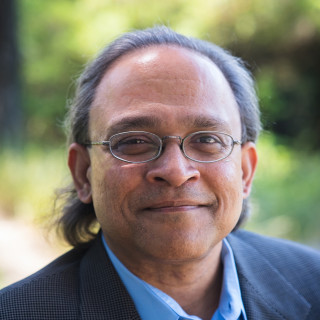
At least one medical school dean has welcomed new students with a slideshow of the students’ publicly-available social media posts and photos. The message to future classes: better clean up, and fast. Even in medicine, the line between public and private has blurred.
The medical profession is likely the last bastion of professional boundaries and decorum, but thanks to Facebook, Twitter, Instagram and all the rest, the walls have fallen. White coats are now stained with a few too many selfies. Once upon a time, the small town GP had to carefully tend his (and more rarely, her) interactions and image with the public. Gossip traveled fast, and could quickly ruin a reputation, a livelihood, and potentially a patient’s health. The doctor’s ability to treat his patients depended on their respect for him. The doctor’s standing in the eyes of parish and community was everything.
Now, the town square includes everyone with internet access and a search engine. Those drunken photos from college or last night, or one’s political opinions, can be quickly dredged up from the deepest abyss of the internet with a simple click of the mouse. Twenty-five percent of young doctors in one survey made their Facebook profiles totally public. Thirty-seven percent of these revealed their sexual orientation, 16% revealed religious views, 43% indicated their relationship status, 46% showed themselves drinking alcohol, and 10% actually showed themselves intoxicated. Eighty percent or more of one sample of medical students and first-year physicians felt their colleagues displayed themselves unprofessionally on Facebook. Relatively few were aware of their institutions’ guidelines about online behavior.
Veterinary student disclosure of personal information was positively correlated with their need for popularity and negatively correlated with their awareness of consequences. (We can all probably relate.) Another large sample of veterinary students showed that a third of them had “high exposure” of personal information, with significant disclosures of unprofessional content such as “substance use, obscene comments, and breaches of client confidentiality.” The earlier the students were in their training, the more likely they were to have high exposure in their online profiles.
We become distorted, like we were the information being passed around in a game of telephone.
Vaguely knowing that some doctors drink to excess is one thing; knowing that yours did so last night is another. Perhaps the notion that every professional has a duty to the image of their chosen profession is quaint — but it is, in fact, true. Our collective trust in the healing professions depends on our respect for their practitioners. Trainees may chafe at this kind of all-encompassing responsibility, but it is still a strong and necessary consideration.
But institutional guidelines can make students feel that their social lives are being hamstrung. Professionals-in-training can feel resentment at being observed and being accountable to third parties, or even feeling “controlled” by their institution. “Students perceived society to be struggling with the distinction between doctors as individuals and professionals,” wrote one group of researchers. Students sometimes feel that being watched is a burden and sacrifice, and intrusive to boot. But someone is always watching, especially online, a point that some choose to ignore.
Mark Zuckerberg’s stated vision for social media is total transparency. He has said, “the days of you having a different image for your work friends or co-workers and for the other people you know are probably coming to an end pretty quickly. Having two identities for yourself is an example of a lack of integrity.” But his vision falls flat for medical professionals, and should indeed fall flat for us all.
Medical professionals (especially psychiatrists like myself) typically do not disclose all their personal information to their patients, and most people don’t disclose everything to everyone at all times, which is precisely what can happen on social media. We all share different aspects of our identities with different people. What is understood in the context of one relationship may be misunderstood or misused by others. We become distorted, like we were the information being passed around in a game of telephone.
Privacy and confidentiality allow medical professionals to feel safe, and also allows them to provide care untainted by the misunderstandings and mistrust liable to occur when patients and institutions depend on online information to assess their physicians. A clear professional boundary allows the space between professional and patient to remain as pure, uncluttered and focused on the patient’s needs as possible. Social media posts can be akin to contaminants in an otherwise sterile OR.
But boundaries do more than ensure privacy, respect, and trust. I would argue that without a boundary, we can’t even form a self. When we are under the lamp of others’ scrutiny, we lose our autonomy. We are overly subject to the judgments — and thus control — of strangers. Our selfhood depends on our inner life, from which we observe ourselves, engage in inner dialogue, and cultivate our intentions. When we lose our personal boundaries, our inner life can be derailed or even erased. Where’s the room for contemplation when you’re posting and performing for an audience? Zuckerberg has even voiced a desire for a future technology to broadcast and receive thoughts.
Perhaps he needs to learn that there are some thoughts he should keep to himself.
Ravi Chandra, M.D., D.F.A.P.A., is a psychiatrist and writer in San Francisco. This essay is adapted from his newly published book Facebuddha: Transcendence in the Age of Social Networks.







